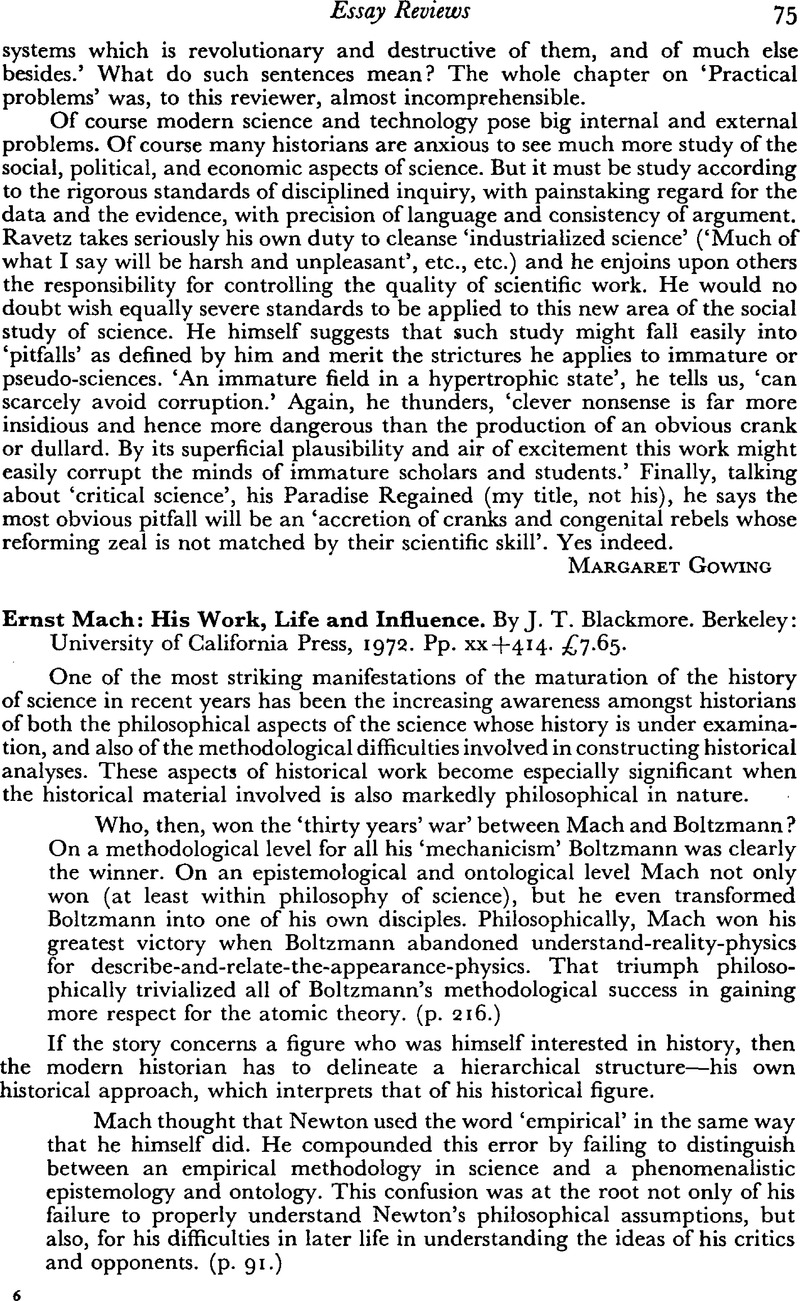Article contents
Ernst Mach: His Work, Life and Influence
Published online by Cambridge University Press: 05 January 2009
Abstract

- Type
- Essay Reviews
- Information
- Copyright
- Copyright © British Society for the History of Science 1974
References
1 In his Objective knowledge (Oxford, 1972)Google Scholar, Popper calls it ‘the third world’, and expresses the distinction under discussion here in terms of ‘common-sense realism’ (the world is at it is) as opposed to ‘common-sense epistemology’ (our theories about the world, involving the interpretation of our appearances, which are not necessarily like the world as it is; and furthermore, we cannot show that they are like the world, even if they are).
2 Kant, I., Critique of pure reason, B 274.Google Scholar
3 Peirce, C. S., Collected Papers, vii (Cambridge, Mass., 1958), art. 485.Google Scholar
4 I have discussed this historiography in greater detail in my ‘Not from nowhere. History and philosophy behind mathematics education’, International journal of mathematical education in science and technology iv (1973), 421–53 (445–8).Google Scholar
5 Among recent literature on Mach not listed in Blackmore's bibliography is d'Elia, A., Ernst Mach (Florence, 1971)Google Scholar. Her discussion of Mach's physics is more substantial than Blackmore's, but Mach's philosophical views are much less closely studied and little notice seems to be taken of unpublished materials; thus her book complements Blackmore's in many ways.
- 1
- Cited by




